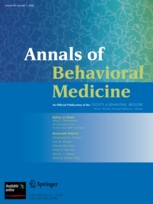Contrary to popular belief, smoking does not help relieve symptoms of mental illness and can often worsen them. A new study shows that patients who were abstinent from smoking reported considerable improvement in depression. This study, along with other findings related to tobacco continue to improve the health and treatment outcomes of individuals living with mental illnesses.
 Depression and Smoking Cessation: Evidence from a Smoking Cessation Clinic with 1-Year Follow-Up
Depression and Smoking Cessation: Evidence from a Smoking Cessation Clinic with 1-Year Follow-Up
Abstract
Background Smoking is more prevalent among people with
depression. Depression may make cessation more difficult
and cessation may affect depression symptoms.
Purpose The aims of this study were to assess the associations
between (1) baseline depression and 1-year smoking
abstinence and (2) abstinence and change in depression.
Methods Observational study using data collected routinely in a smoking cessation clinic in the Czech Republic from 2008 to 2014. Aim 1: N = 3775 patients; 14.3% reported mild and 15.4% moderate/severe baseline depression levels measured using Beck’s Depression Inventory (BDI-II). Logistic regressions assessed if depression level predicted 1-year biochemically verified abstinence while adjusting for patient and treatment characteristics. Aim 2: N = 835 patients abstinent at 1 year; change in depression was analysed using Chi-square statistics, t test and mixed method analyses of variance.
Results Rate of abstinence was lower for patients with mild (32.5%, OR = 0.68; 95% CI: 0.54 to 0.87, p = 0.002) and moderate/severe depression (25.8%; OR = 0.57, 95% CI: 0.45 to 0.74, p < 0.001) compared with patients without depression (40.5%). Across abstinent patients, the majority with baseline depression reported lower depression levels at follow-up. Overall mean (SD) BDI-II scores improved from 9.2 (8.6) to 5.3 (6.1); t(834) = 14.6, p < 0.001. There were significant main effects of time (F(1832) = 880.8, p < 0.001, partial η2 = 0.51) and baseline depression level (F(2832) = 666.4, p < 0.001, partial η2 = 0.62) on follow-up depression and a significant depression * time interaction (F(2832) = 296.5, p < 0.001, partial η2 = 0.42).
Conclusions In this effective smoking cessation clinic, depression at the start of treatment predicted reduced smoking abstinence 1 year later. Patients abstinent from smoking experienced considerable improvement in depression.